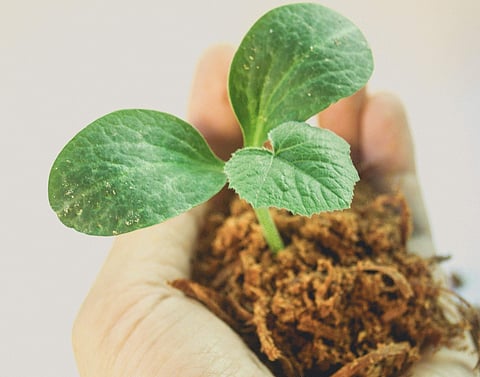Fiinovation to plant 1 million trees by the 2020-end across India to reduce soil toxicity
With an aim to plant 1 million trees by the 2020-end across the country, Fiinovation launched a phytoremediation-based tree plantation initiative called Ecotopia. The research and advisory agency says this will be done with the help of its network of over 2,000 implementing partners, including corporates, across India. “Rapid industrialisation and urbanisation has resulted in deforestation and contamination of soil, water, and air, which in turn has accentuated the adverse effects of climate change.
It has also had an inverse impact on the rich biodiversity,” says CEO of Finnovation, Dr Soumitro Chakraborty. “Mitigating the effects of climate change requires concerted efforts by one and all. We are contributing our bit towards climate remediation through this initiative. It is a small step but we feel it will create awareness,” he says, exhorting all public and private enterprises, to collectively mobilise their resources for this initiative.
Chakraborty participating in the
Ecotopia tree drive
“Everyone knows that trees absorb greenhouse gases, increase evaporation, transpiration, and replenish the water table. To a large population, trees are also a source of livelihood,” says Ghaziabad-based environmentalist VP Baghel, Founder, Paryavaran Sachetak Samiti (PSS).
The PSS works on strengthening the local population through their active participation in decision-making to increase green cover, reduce air, water and soil and conserve natural resources through sustainable development. Phytoremediation is a bioremediation process that uses various plants and microorganisms associated with them to remove, transfer, stabilise, and/or destroy contaminants in soil and groundwater.
“The method relies on natural processes by which the plants degrade contaminants and/or sequester carbon, limiting the emission of greenhouse gases. Generally grasses and sugarcane are used for phytoremediation, but almost all trees will help in the process in some way,” says Dr BC Sabat, who retired from the Dept of Environment, Delhi Government. “We are planting some specific species at dumping grounds in industrial belts and landfill sites as soil at these places has a high concentration of toxic heavy metals.
Trees like Peepal, Neem, Semal, Pilkhan, Jhinjheri, Banyan, Amaltas, Subabool, etc., at these places will increase green cover and also improve the quality of soil and water, offsetting carbon footprints to a large extent,” says Dr Chakraborty, adding that an agreement has already been signed with some corporates for planting 1 lakh trees in Pune, Patancheru (in Hyd e r abad) and Udaipur.

